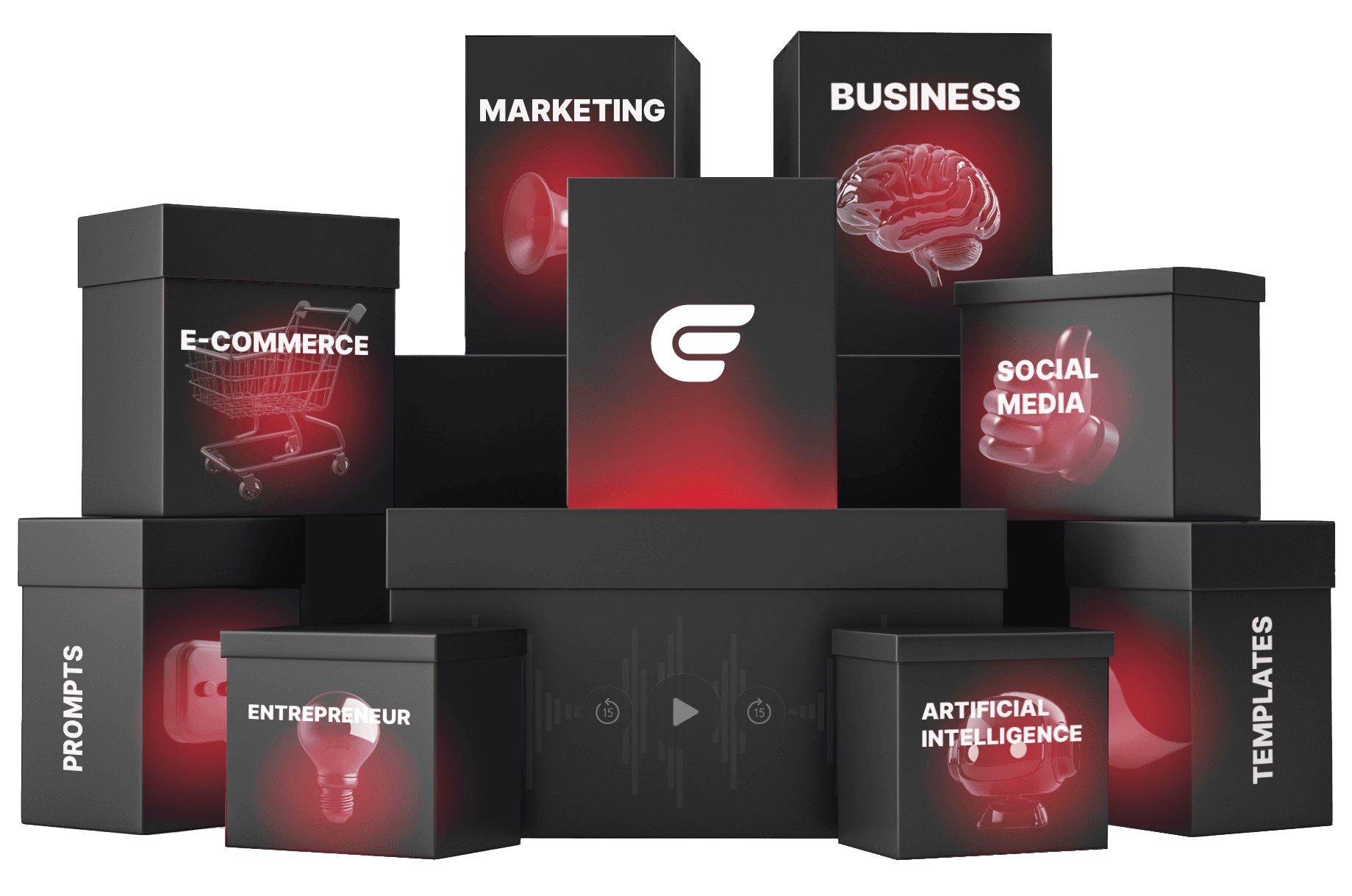Did you know that experts project the online learning industry will surpass $300 billion by 2025?
This growth presents a rare chance. Hobbyists can turn their passions into profitable digital products.
People worldwide are using their passions. They turn them into digital products. These products bring personal achievement and make money. Online courses are central to this change. They give hobbyists the skills and knowledge to succeed in the digital marketplace.
But how online courses have become a catalyst for turning your hobbies into successful digital products?
The Power of Online Education in Digital Product Creation
Online courses offer a clear and full way to get new skills or improve existing ones. They cover a wide range of subjects, from digital marketing and web design to photography and software development. Hobbyists can transition from casual hobbies to profitable digital products with these courses. These products include eBooks, online courses, software, and digital art.
Practical Tips for Transforming Hobbies into Digital Products
Identify Your Niche
The first step to turn your hobby into a profitable business is finding a niche. This niche should blend your passion with market demand. Research to understand your potential audience. Find out what knowledge they will buy.
Go through your niche and do your homework. Find the best-performing courses and authors. Then, take a look at the courses they offer. Make a list of “Pros” and “Cons” for the course you've already watched.
For the “Pros” section, write down what stands out to you as valuable and beneficial. In the "Cons" section, note what is lacking in the course. This includes extra tips, better visuals, guidance, voice quality, camera quality, etc.
This approach helps you find areas that could become your strengths. You can use them against your competition.
Tip: Share these courses with your friends and family. Do it after you've watched them and listed the good and bad. You can gain valuable feedback from those who are impartial and novices in that field.
Invest in Relevant Online Courses
Once you've pinpointed your niche, seek out online courses that can help you turn your idea into a tangible digital product. You need to learn about making digital products. You must understand online sales platforms and master the basics of marketing. The right courses can set you up for success.
Example: John is an amateur photographer. He enrolled in a digital photography course. He also took a separate course on creating online courses. Applying what he learned, he developed a series of photography tutorials, combining his passion with new skills to create a sought-after digital product.
Many online course platforms, such as Skool, offer forums or community support. Talking with other learners can give extra insights. It also provides motivation and networking chances. These things are invaluable for new entrepreneurs.
Don't overlook free resources as a starting point. Websites like MOOCs and Entrepedia offer free, high-quality education. This lets you explore various fields without spending money.
Consider Google's Digital Garage for foundational digital skills. Yet, LinkedIn Learning offers complete courses. They cover video production, graphic design, and writing. These can improve the quality of your digital products.
Build and Market Your Digital Product
With the knowledge gained from online courses, start building your digital product. Focus on creating high-quality content that reflects your passion and expertise. Then, use digital marketing strategies from courses to promote your product. Focus on SEO, content marketing, and social media. Use them to reach your target audience.
Steps to Creating Your Online Course
Outline Your Course Content
Begin by mapping out the structure of your course. Break down your content into digestible modules or lessons. The topics should progress logically from one to the next. Design each segment to help learners achieve specific outcomes or skills.
Select the Right Tools for Course Creation
Use Teachable, Thinkific, or Kajabi. These platforms make creating, hosting, and sharing courses easier. They also have intuitive design interfaces. They also have payment integration and student management systems. These features will streamline your course launch.
Incorporate Diverse Teaching Materials
To improve learning, use many content types. These include video lectures, PowerPoints, and quizzes. Ebooks can be an excellent addition. They are supplementary material that dive deeper into topics from your course. Tools like Canva and Adobe Premiere Pro can help create these materials. They make sure the materials are both informative and visually appealing.
Quality Assurance and Feedback
Before you launch, review your course. Make sure all materials are clear, accurate, and engaging. Consider offering free access to a select group of learners. In exchange, they will give their honest feedback. This can highlight areas for improvement and help polish your course before it reaches a broader audience.
Marketing Your Online Course
Your course is ready. Now, we focus on good marketing to attract learners and generate interest.
SEO Optimization
Develop a keyword strategy for your course landing page to improve visibility in search engine results. Tools like Ubersuggest, Ahrefs or Google Keyword Planner can help. They identify relevant keywords that potential students might use.
Content Marketing
Create valuable content related to your course’s subject matter. This could include writing articles or recording podcasts. It could also include creating videos for social medias or YouTube. These things should address your target audience's interests and needs. They should show your expertise and promote your course indirectly.
Social Media
Share insights. Post course highlights and student feedback on platforms popular with potential students. Engaging with your audience on these platforms can boost your course's visibility and credibility.
Example:
John, skilled in digital photography, created an online course covering advanced photography techniques. He added video lectures. He also added an eBook on basic photography. He gave it as a free download to learners who signed up for his course. Alex used Instagram and YouTube to share tips and show his students' work. This attracted a dedicated following. It turned his skills into a profitable online business with online courses.
Leverage Feedback and Iterate
After launching your digital product, ask your customers for feedback. You want to understand what works and what needs improvement. Use this feedback to improve your product. Keep making it more valuable and appealing to your audience.
Strategies for Gathering Feedback
Use tools like Google Forms or SurveyMonkey. Use them to make and send surveys to your customers. Keep questions concise. Keep them focused and easy to understand. You can offer a small reward to encourage participation.
Monitor social media platforms and online forums related to your course topic. These platforms can give unsolicited feedback. They are also places for discussions about your product. They offer real insights into your audience's thoughts and needs.
You should send personalized follow-up emails to your customers. Ask for feedback. This can provide specific insights. They can also show your commitment to customer satisfaction.
Once you’ve gathered feedback, categorize it to identify common themes. Tools like Trello or Asana can help organize feedback into actionable items. This process helps prioritize the changes. They will have the biggest impact on your product's quality and customer satisfaction.
Implementing Changes
Adopt an iterative approach to product development. This means making continual, small improvements based on customer feedback. You should not wait to completely overhaul your product.
Keep your users informed about updates and improvements. This transparency can build trust and show your dedication to providing value. For big changes, use A/B testing. It compares the outcomes of your iterations. This can help determine the most effective versions of your product before a full-scale rollout.
Example:
Jordan created an online course on digital marketing. After he launched it, he actively sought feedback. He conducted surveys and sent direct emails. He found that his students wanted more interactive content. Jordan used this feedback. He introduced live Q&A sessions and interactive quizzes. This move significantly raised engagement and satisfaction rates. He used a blog post to update existing and potential customers about these enhancements. This further showed his commitment to quality and customer satisfaction.
Closing Thoughts
Turning a hobby into a successful digital product is easier now. Now, we can offer courses online via digital marketplaces and platforms.
By following the steps above and using online education, you can go from passion to profit. You can turn your interests into profitable digital products.
You pave your journey with education, creativity, and smart action. It goes from being a hobby to being a successful digital business.

Tomas
Founder of Entrepedia









